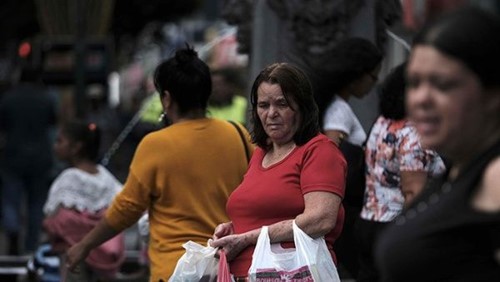
COVID-19 has unveiled the ordeal undergone by MSMEs in Latin America and the Caribbean. Actually, no one was prepared to face isolation, confinement and lack of digitalization, technology implementation and access to e-means. Add to this the economic shrinkage.
According to ECLAC, MSMEs account for 99% of enterprises in the region contributing with 61% of formal employment and 25% of production. Their input to regional economies makes them a fundamental agent in fighting against poverty and bridging the structural gap that hinders Latin American development.
ECLAC data reveal that the stalemate associated with COVID-19 impacted employment and labour conditions of women in Latin America and the Caribbean, a backlash of more than one decade from the successes related to labour involvement.
Labour involvement of women stood at 46% in 2020, compared to 69% for men. In addition, the unemployment rate among women hit 12% in 2020, up to 22.2% in contrast with 2019.
Around 2.7 million formal enterprises, including 99% of MSMEs, have shut down in Latin America since the beginning of the health crisis, according to ECLAC.
MSMEs suffered the most the aftereffects of COVID-19, resulting in the worst recession over the past years, with the regional GDP sliding by 7.7% in 2020. No matter their economic and social relevance, MSMEs have troubles to get financing.
According to the World Bank, approximately 47% of SMEs (5-19 employees) in the formal sector are deprived of a bank loan or a borrowing facility. If owned by a woman, the number surpasses 50%. About 23% of the MSMEs owned by women have financial problems or constraints, compared to 25% of their male counterparts.
An dramatic outflow of women from the labour force was recorded in 2020. The efforts at meeting the growing demand of homecare prevented those women from finding a job again.
About 56.9% of women in Latin America and 54.3% in the Caribbean work in sectors where the effect of the pandemics on employment and income is expected to be more severe.
Narrowing the abyss of inequality at MSMEs led by women in Latin America and the Caribbean could change the economic horizon. Gender equality in the labour market could increase the region GDB by almost 23%, contributing over US$1 trillion to economic production by 2025, based on the statistics of the IDB.
The Latin American and Caribbean System (SELA), as part of its new socioeconomic agenda, deems it extremely important the proposal, promotion and implementation of specific domestic policies to narrow the divide. Such an approach is the cornerstone of the work plan with Member States.
